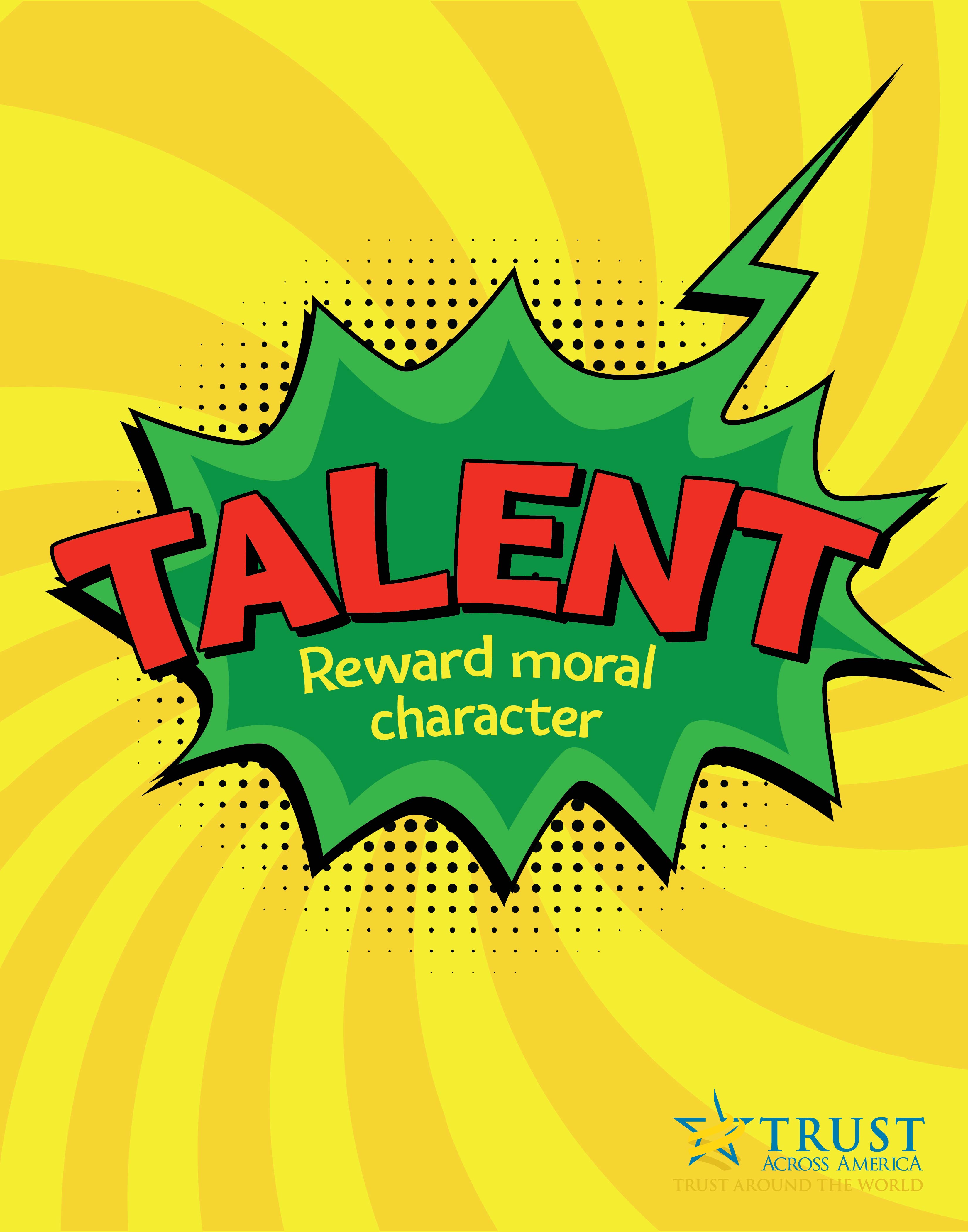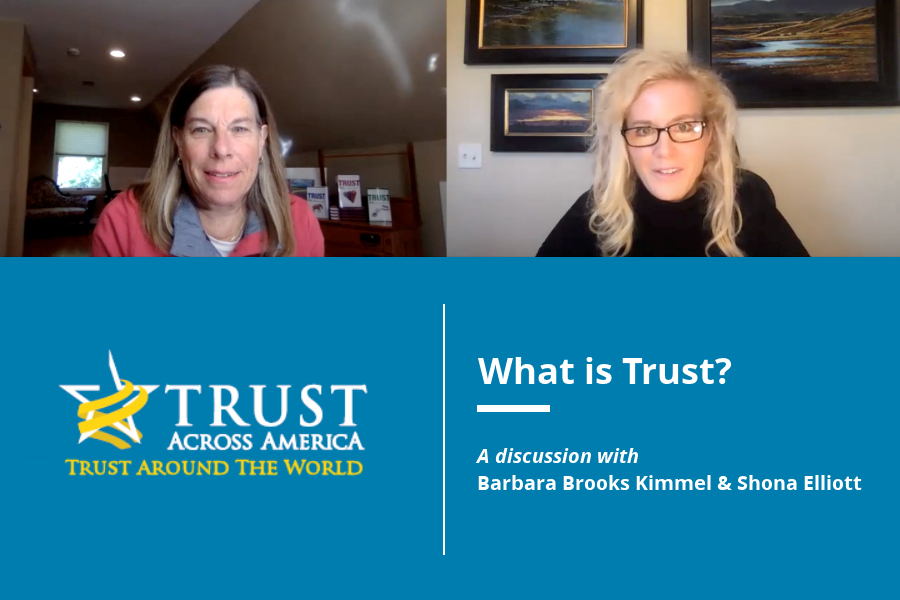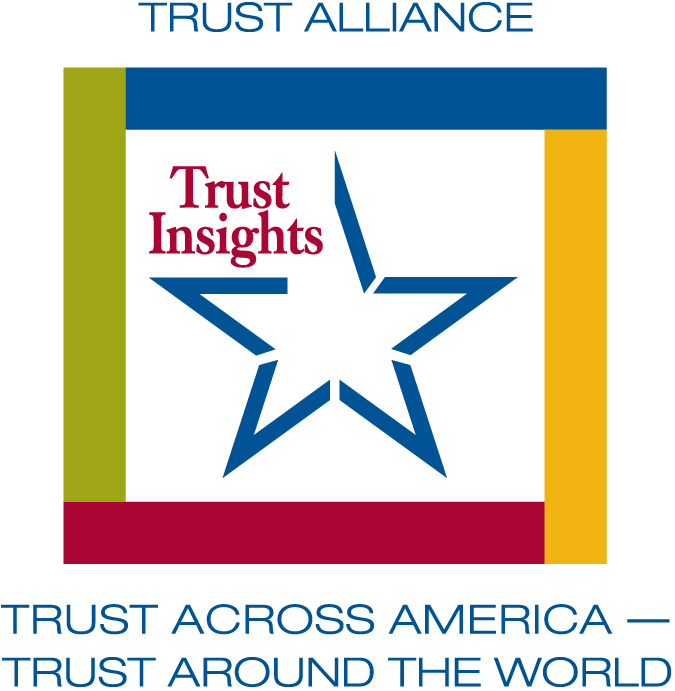 How many of the following are present in your workplace?
How many of the following are present in your workplace?
Leaders trust their employees
Employees trust their leaders
Team members trust each other
Ethical behavior is rewarded
In most workplaces the answer may be “None.” How do we know that? Our global Survey of Workplace Trust continues to reveal trust gaps that should concern every stakeholder.
Trust is always interpersonal and the outcome of principled behavior. The reasons for low trust vary from relationship to relationship and team to team making “one size fits all” box checking impossible. The good news, trust can be a learned competence and need not be “shelved” until the next crisis, only to be used as a talking point with no followup action to support it. Instead, trust can and should be a proactive business strategy that is practiced by leadership and reinforced daily.
This past November I wrote an article for SHRM Executive Network Blog called Hiring for Trust.
Many of our Trust Alliance members including Charles H. Green, Lea Brovedani, Olivia Mathijsen and David Belden were quoted, all subject matter experts in their own right.
As I mentioned in the article… Sadly, most leadership teams and their HR professional staff have never considered the role trust plays in organizational success, beginning with hiring practices. Even sadder, working from home has now further compounded the glaring lack of trust that exists between employees and employers, making hiring even more challenging.
Hiring for trust does not just “happen” and when leadership fails to consider the role trust plays in organizational success, let alone adopt it as a core value of the organization, hiring for trust makes little to no sense. Given this all too common scenario, leaders should be prepared for new employees quickly to become disengaged and to jump ship once they realize that their personal values and those of the organization do not align.
Since the publication of this article, I have been asked numerous times for some “pointers” on the kinds of questions interviewers might ask if trust were, in fact, a core value of their organization. The list of questions provided below are drawn from some of the behaviors in our TAP Framework, the basis for our Workplace Trust Survey, that strengthen or weaken trust in a team.
Thirteen questions to consider asking if hiring for trust
- How do you feel about telling “white” lies?
- If you failed at achieving a goal, would you openly and candidly acknowledge it?
- Do you feel that your values are aligned with the values of this organization?
- Can you provide an example of how you have recently acted with integrity in either your personal or professional life?
- Do you consider yourself a good listener and why?
- Are you more competitive or more collaborative?
- If someone on your team disagrees with you, how do you react?
- What do you consider your top three character strengths?
- What would keep you from having open and frank conversations?
- Is transparency the best option if it compromises kindness?
- Could you respect a teammate you didn’t trust?
- Should employees feel safe to fail?
- What ethical behavioral goals have you set for yourself?
These questions are meant to address specific trust-building behaviors like truth, accountability, purpose and respect, among others. If you are in a hiring role and can’t personally answer them or don’t know the “right” answer, Tap Into Trust for more free resources. Rest assured, if you start incorporating some of these questions into your practices you will be not only be hiring for competence but also for those character traits that build interpersonal trust.
Join over 150,000 global citizens who have accessed our behavioral principles to not only hire for trust, but to strengthen both team and organizational success.
By Barbara Brooks Kimmel, Founder & CEO, Trust Across America-Trust Around the World
Copyright 2021, Next Decade, Inc.
Have you heard about The “Art” of Trust? It’s our newest tool!




Recent Comments